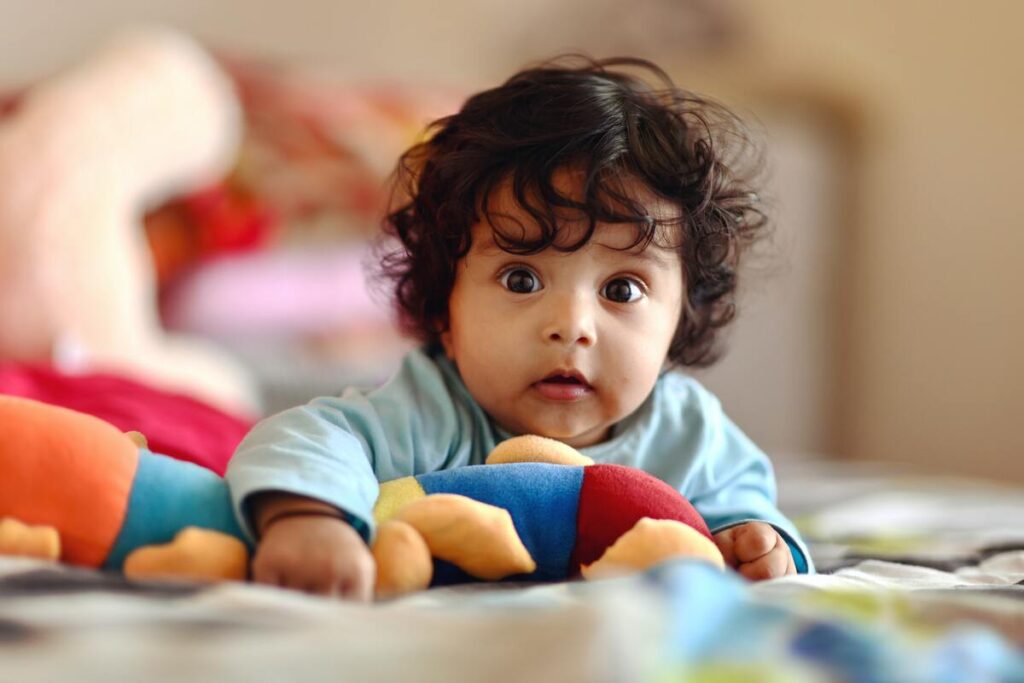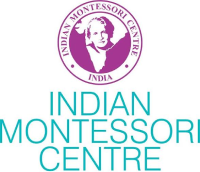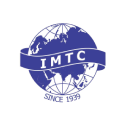Dr. Montessori would remark, “the first two years of life are the most important. Observation proves that small children are endowed with special psychic powers and points to new ways of drawing them out – literally ‘educating by cooperating with nature’. So here begins a new path, wherein there will not be the professor who will teach the child, but the child who will teach the professor”.
From a very protective environment in the womb that is pleasantly warm, of comfortable touch, temperature controlled and noise controlled, the infant arrives amidst us into a place full of bright lights, sounds, fluctuating temperatures and uncomfortable/harsh touch.
Dr. Sylvano Montenaro, an expert on Infant Montessori would say, “ we should not look at newborn infants as small, helpless human beings but as persons who are small in size, but with immense mental capacity, and many physical abilities that cannot be witnessed unless the environment assists in the expression of life”.
“Wax to receive and Marble to retain” are words Dr. Montessori refers to the baby.
It has been found that the first few months of life lay the foundation of the attitudes towards the world. Life during the first year also sees a wonderful growth of independence. Most parents treat the child as if he is totally dependent on them. The onus is on the adults to know as to when we are necessary and when to withdraw. Very noticeable for those who are observant about babies is the fact that they find every opportunity to be independent.

Sleep! The infant sleeps more than an adult, but our regulatory methods make it necessary to wake him up. What we need to understand is that the baby can regulate his sleep for his health – physical and mental. Dr. Sylvano says “ a great deal of mental work goes on during sleeping and dreaming.” We need to understand that sleep is important for many reasons and never should be disturbed to accommodate our regulatory methods. Sleep should come naturally to him. He should not be made to sleep by the efforts of the adult.

Crying! Can we equate the sounds emanating from the child to unhappiness because adults cry when unhappy? Can we relate to crying as his means of communication? Or, shall we say the baby cries for food? Dr. Montessori says “such a method of communication can be for various reasons. Putting the bottle to the mouth need not be the only solution”. It is observed that babies cry differently at different times.
Language! Music, stories, language are all good inputs for the infant. The baby is highly sensitive to human speech among all other sounds. It is precisely the reason why we should speak good language in a natural way of speaking. Experiments have shown that when a baby makes a sound and an adult repeats it, the child finds it interesting. Eventually, he tries to imitate the adult’s talk.
Movement! The adults should realize that the baby learns to walk by walking, learns to climb by climbing, and swims in order to learn to swim. Crawling, standing, using the toilet or feeding oneself are noticeable to the observer as the child’s need to be independent. Curbing or restraining such attempted movements to realize these will not help the child but proves hindrance to his activity and subsequently, his development. That the restriction on physical movements will jeopardize his psychic development is not understood by many.
The progressive way the infant makes conquest of several movements – turning on his tummy, creeping, crawling, sitting and standing is one of life’s greatest miracles. The role of the adult lies in providing an environment which allows the child to make his conquest in his own natural way.
This is just the tip of the iceberg. Those who want to unveil the great mystery of the Child should make great efforts to do it.

edited from an article by Mrs. Meenakshi Sivaramakrishnan.
*image Courtesy by Rajesh Rajput on (Unsplash) , Kelly Sikkema on (Unsplash) , Pranav Kumar Jain on (Unsplash) , Sergiu Vălenaș on (Unsplash)




